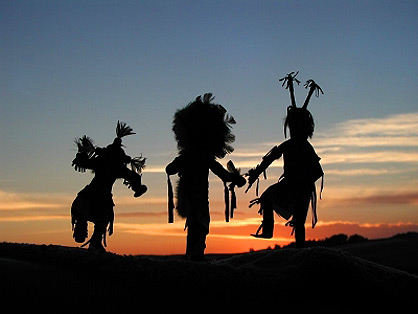 The funeral home sign said: "Dolphins sleep with one eye open." A shiver coursed through my body and I declared to no one and the universe, "what the f@#$ could that possibly mean?" I rubbed my eyes like a chubby-fisted toddler and blinked a few times, but the improbable announcement remained where it was, electric red standing out against the early morning darkness. It is -25C, everything is frozen in ice and snow, the air is so cold that car exhaust lingers in the air unnaturally, as if the noxious fumes were reluctant to be absorbed into the larger atmosphere. No one can be seen walking at this hour, everyone awake is in some sort of vehicle or other, or getting into and out of a vehicle. All is normal in the sleepy suburbs, except for the disturbing revelation that dolphins are afraid of getting jumped while dreaming, presumably about infinite shoals of slow moving fish.
The funeral home sign said: "Dolphins sleep with one eye open." A shiver coursed through my body and I declared to no one and the universe, "what the f@#$ could that possibly mean?" I rubbed my eyes like a chubby-fisted toddler and blinked a few times, but the improbable announcement remained where it was, electric red standing out against the early morning darkness. It is -25C, everything is frozen in ice and snow, the air is so cold that car exhaust lingers in the air unnaturally, as if the noxious fumes were reluctant to be absorbed into the larger atmosphere. No one can be seen walking at this hour, everyone awake is in some sort of vehicle or other, or getting into and out of a vehicle. All is normal in the sleepy suburbs, except for the disturbing revelation that dolphins are afraid of getting jumped while dreaming, presumably about infinite shoals of slow moving fish.Why is this the message the funeral home administrators wish to impart to a casual onlooker such as myself? It's a Christian-oriented place for the dead, or rather for living people who must deal with the dead, so I searched my brain for anything which might explain this strange coupling together of embalmed corpses and suspicious dolphins. Dolphins and porpoises have always been benevolent symbols for those lost at sea, and the persecution which characterized Christianity's early years easily leads to the rather cliched image of the dolphin as shepherd, alive for no other reason than to guide and comfort lost and forlorn humans. Perhaps the funeral home curator was intending this allusion, saying to anyone who happened to see the sign, "Child, you're bound to experience death one way or another, consider the affable dolphin and be comforted."
But what of the enigmatic detail that the ocean-going mammal in question sleeps with an eye open? Is this to say that, though the dolphin, beloved as it certainly is by human folk the world over, nevertheless has its own share of enemies, indeed, enemies so malevolent and conniving that the beleaguered dolphin has no choice but to peek out from beneath its heavy eye lids, never having a chance to enter into that salubrious REM netherworld. It's a wonder what could be so pestering that a good night's sleep is denied them. Some disgusting sea urchin, I suspect. And their days are surely ruined, without adequate sleep how can a dolphin be expected to contribute to its pod's complex hunting strategies?
But no, the dolphins are safe from urchins and other sea creatures whose foul appearances tend to signify foul personalities to us thoughtful land mammals. No one bothers them, except for us, and in any case their partial sleeps allow them to react quickly in times of danger and swim away, these aquatic cheetahs, as if it were nothing. What if rather than out of a cautious suspicion, these listless dolphins suffer from a kind of ennui, a malaise-ridden hopelessness which must characterize the dismal reality facing ocean life in our times: If there's habitat, humans will exploit it; if there's life, humans will eat it. Consequences be damned! Everything everywhere less varied, less abundant, perhaps these legendarily intelligent creatures see what's going on, in the same sense that humans "see" what's going on. With an eye open at all times they notice the evacuation of their primordial domains, and it makes them sad. They sound at each other, "It's all over, the humans are taking it all." And like people who can't help themselves from gawking at a terrible accident, dolphins sleep with one eye open so that they might see the destruction of their world.

























